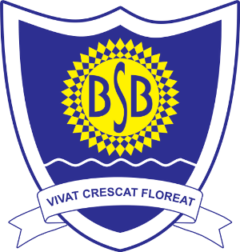Tərəqqi və hesabat
Assessments
Both home and school need to know how successfully pupils have learned within our curriculum.
Our assessment program has been modified to incorporate both the Cambridge Primary Curriculum and the Cambridge Curriculum used in the Secondary School and the National Curriculum for England and Wales for the foundation subjects.
All teaching staff members regularly assess pupils through formal and informal methods, such as Spelling tests and Mental Math tests, summative assessments, formative assessments, peer assessments, and the like. Besides, teachers keep up-to-date records of these assessments and anecdotal notes on all pupils’ classes.
Progression Tests
In the Autumn and Spring terms, internally designed end-of-term assessments cover the work learned in that term in Literacy, Numeracy, and Science. In the final term of the academic year, the summer term, pupils complete Literacy, Numeracy, and Science Progression Tests allocated by the University of Cambridge. These are marked internally and are compulsory for all pupils from Years 3 to Year 6.
Check Point Assessments
In addition to the Progression Tests, all Year 6 pupils complete an externally marked Cambridge assessment. These Check Point assessments cover the curriculum learned for the year in Literacy, Numeracy, and Science. These assessments take place in April, and the results are sent back to the school once they have been marked. The pupils receive a certificate to show that they have completed their Primary School years and may proceed to Secondary school.
KS1 and Reception Assessment
Pupils in KS1 classes are assessed in Literacy and Numeracy using internally designed assessments. Reception pupils are not assessed; however, notes regarding their progress and learner profiles record their progress.
Reports
Reports are one of the most important ways educational institutions can communicate how they are doing in their academic careers. BSB reports are no exception and have been designed to give the utmost information about the pupil’s progress.
KS1 and KS2 reports
These reports are given out three times per year after each end-of-term assessment. We use a grading system based on the Cambridge Primary Curriculum and use – and + symbols to demarcate levels further. The grading system is for the subjects in which the pupils have been assessed in. Please note that C-, C and C+ are all perfectly acceptable marks for pupils and denote that they function on a corresponding level with most learners in the United Kingdom. Additionally, we have an Effort section which is carefully described in the report. This shows how the pupil has applied themselves during that particular term.
Reception Reports
These reports do not have grades since these learners do not do formal assessments. Their reports consist of anecdotal notes in the following Prime Areas; Communication & Language, Physical Development and Personal, Social & Emotional. Added to this, in-depth comments are recorded in the Specific Areas of English, Mathematics, Expressive Arts & Design, and Understanding the World

